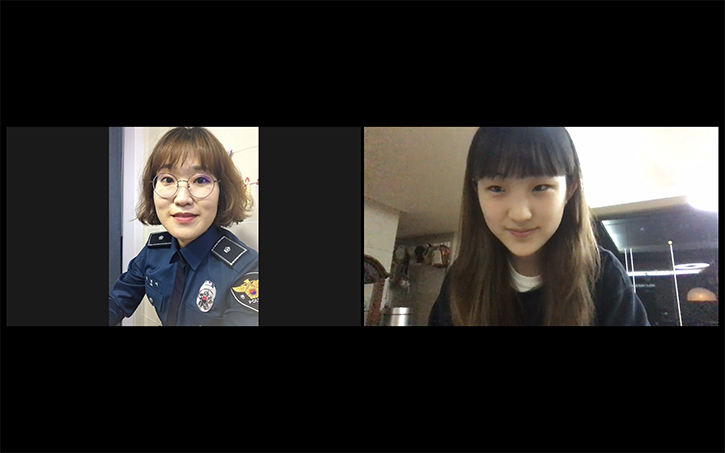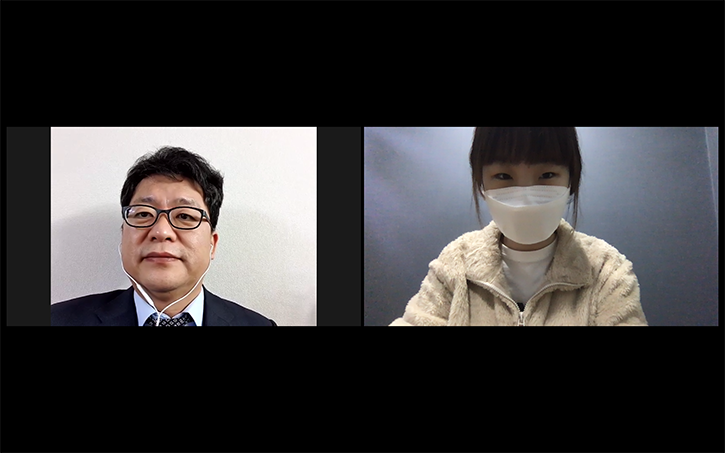On January 2, 2021, a child abuse case from stepparents was broadcasted through the SBS episode reporting TV show called “Unanswered Questions.” According to the program, a 16-month-old girl named Jung-in passed away on October 13, 2019, due to severe injuries to her head and abdomen from her stepparents. After the episode of Jung-in’s child abuse was aired, ‘#sorryjungin’campaign spread widely through social media to mourn Jung-in’s death. More than 250,000 people signed the national petition for strict punishment for foster parents’ child abuse and a new measure to prevent the recurrence of such incidents. This case thrust child abuse into the spotlight.
Child abuse refers to physical, mental, and sexual abuse or violence. It also includes abandoning or neglecting the child from an adult, including a guardian, that may harm or hinder the normal growth of a child according to the Children’s Welfare Law of South Korea. To investigate the status of child abuse in Korea, I interviewed a police officer, Kyunga Lee.

According to the National Police Agency’s “Results of Child Abuse Report and Processing,” the number of child abuse reports to 112 has increased by about 4,000 in the past five years. It increased 37.5% from 10,830 in 2016 to 14,894 in 2020. The number of arrests also increased by 66.1%from 3,364 to 5,588 over the same period. When I asked Ms. Lee who is most reported as an abuser, she mentioned the largest number of abusers are biological fathers, followed by biological mothers, stepfathers, and stepmothers.
She also introduced the child abuse report procedure. After receiving a report on child abuse, an on-site investigation will be conducted, followed by protective measures of abused children, abuser measures, case management, and follow-up management.
She said, “Judicial police officers or civil servants in charge of child abuse can go to the scene where child abuse crimes are reported to be committed and investigate or ask questions about related persons, such as children or child abuse offenders. At this time, they will stop child abuse crimes, isolate child abuse offenders from children, and deliver the victim to child abuse-related protection facilities or medical institutions if the child needs an emergency measure.”
To know more about Korean law about child abuse and about especially for adopted child abuse cases, I interviewed a lawyer, Jaebeom Sim.

“The crimes against child abuse were able to punished under the Criminal Code, which was enacted on September 18, 1953.” He first introduced the Special Act on the Punishment of Child Abuse Crimes which was enacted and enforced on January 28, 2014, to strengthen the punishment of child abuse crimes and to prepare the protection procedures for victimized children specifically. He mentioned that this Act could be applied to all kinds of child abuse.
He introduced the ‘Eun-bi’ case in Daegu to explain a trial precedent for more information.
Eun-bi was adopted to a family in 2016 in Daegu. Only after a year, she was taken to the emergency room in April 2017 with bruises and burns all over her body. The hospital reported suspected child abuse to the police, but the police did not take any action. In July of that year, she lost consciousness. She was retaken to the emergency room where she was announced brain-dead and eventually died. At that time, the adoptive parents made an excuse that she injured herself. However, the police investigation found that the adoptive parents had repeatedly abused Eunbi and arrested them on charges of habitual abuse and serious injury under the Special Act on Child Abuse Crimes. During the trial, they were sentenced to 15 years in prison (ten years in the first trial but five more years in the second trial).
He emphasized several incomprehensible parts of this case. First, he pointed out when Eun-bi was sent to the emergency room for the first time. “Even though the hospital reported to the police, no action was taken. So Eun-bi was sent back to her stepparents.” He stated that this was the result of the lack of proper investigation. Next, he indicated when she was carried to the emergency room again. Nevertheless, the Child Protection Institution started an investigation. Eun-bi’s stepparents still proceeded with the adoption, and the Seoul Family Court granted the adoption permit. The adoption agency and foster parents hid Eun-bi's condition and obtained permission for the adoption.
Therefore, he asserted that follow-up management is needed to support adopted children’s stable family life of adopted children and adoptive parents. “Currently, the head of an adoption agency is required to observe adoptive families for one year after the adoption is established, to provide the necessary information, counseling, but it is often formal. Under the current legal system, however, practical post-adoption management is difficult.”
“Although the public awareness of child abuse crimes is improving, the arrest rate of investigative agencies and criminal punishment are not up to expectations yet. It is due to the lack of changes in perception that child abuse is still considered as a family affair and wants to avoid interference.” He lastly claimed that when child abuse crime occur, severe punishment is needed not only for the abuser but also for those who have a duty to prevent child abuse crimes, such as workers at related agencies and those who lack follow-up measures.
A child is a person with dignity, just like an adult. Respect and protection are needed. It needs to be recognized that child abuse is currently happening around us. After all, the children are the future. Let's all be aware of child abuse and make our society widely open to the children who need help. We must break the silence!

Haram Yoon
11th grade
Holy Trinity Catholic High School (TX)

